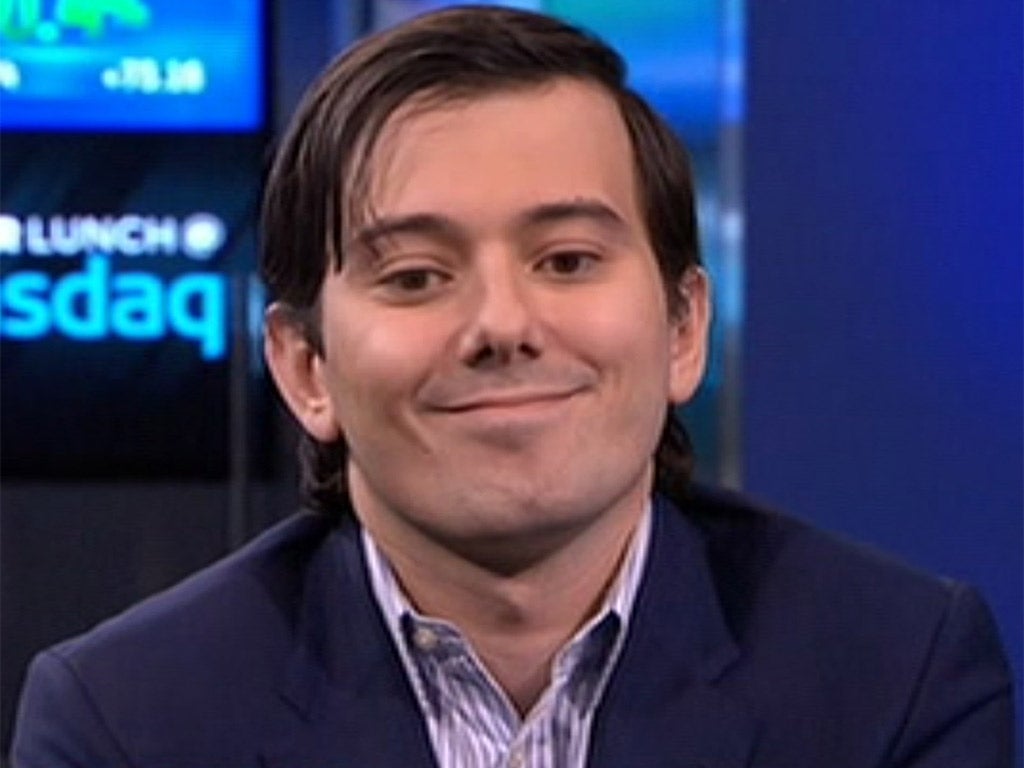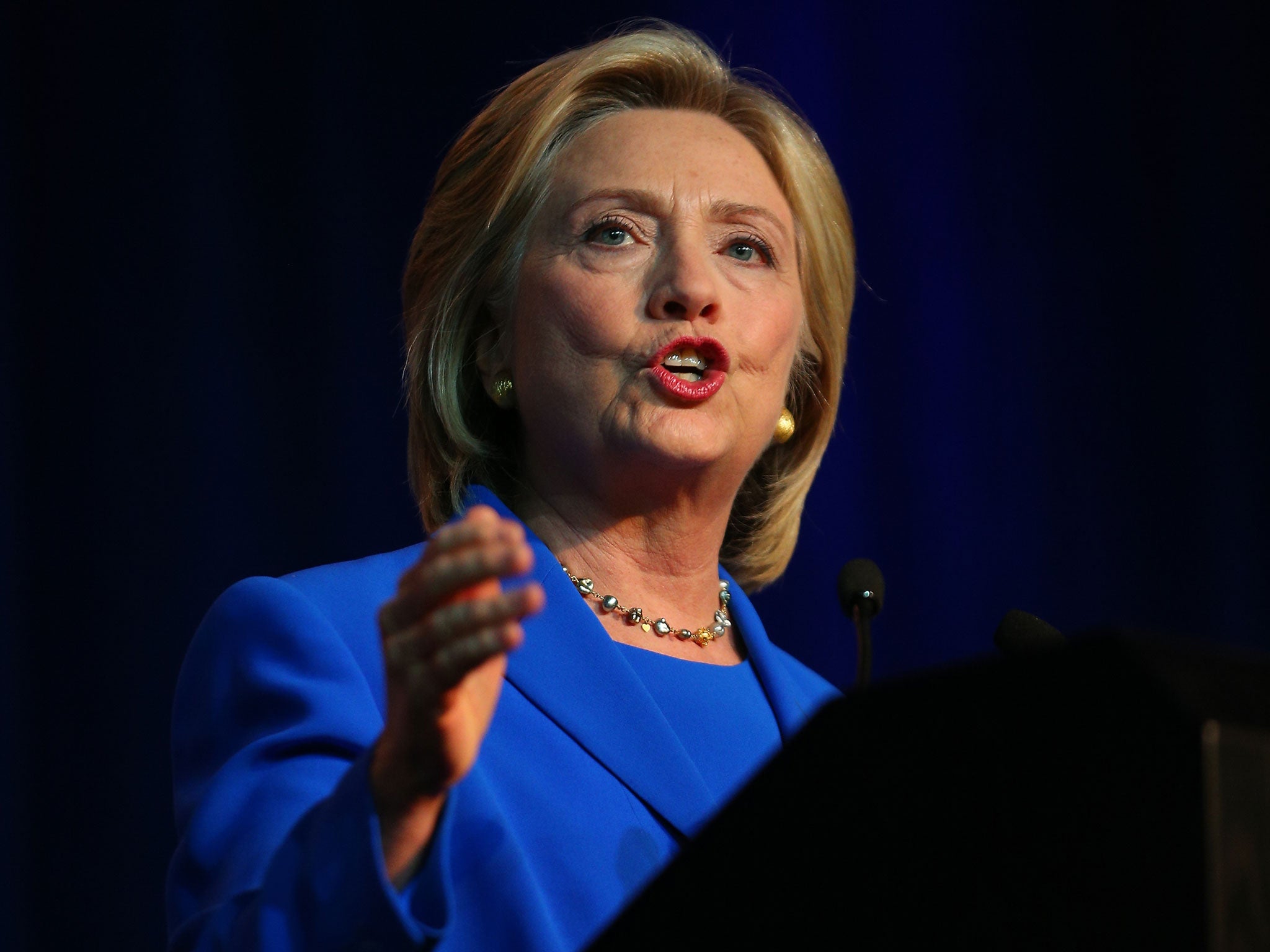Hilary Clinton joins outrage at hedge fund investor Martin Shkreli's 5,000% HIV drug price hike
Clinton described the Daraprim increase as outrageous 'price gouging'

Martin Shkreli is not receiving visitors. At the midtown New York building where the 32-year-old – who this week ranks among the world’s least popular entrepreneurs – has his office on the 39th floor, security is tight.
His firm, Turing Pharmaceuticals, is far from being the first to take an old drug and increase its price. But Mr Shkreli may be the first to boast about it. Mr Shkreli, a hedge fund investor, caused a global outcry after his company raised the cost of a life-saving treatment for people with HIV and weakened immune systems by 5,500 per cent overnight. He has since been seeking to fight back against the scorn, and allegations that he could be threatening the health of people with potentially deadly diseases by increasing the cost of treatment from $13.50 per pill to $750. “At this price it’s a reasonable profit,” Mr Shkreli told CBS News. “Not excessive at all.”
Both the Infectious Diseases Society of America (IDSA) and the HIV Medicine Association disagree. In a joint letter, they called the price increase for Daraprim, known generically as pyrimethamine, “unjustifiable for the medically vulnerable patient population” . The hike was carried out last month, shortly after Mr Shkreli and his firm bought the rights to the drug.
Hillary Clinton, who announced drug price reforms that will be a key part of her presidential campaign, described the Daraprim increase as outrageous “price gouging”. Fellow Democrat candidate Bernie Sanders moved to add Daraprim to an ongoing probe on Capitol Hill.

Turing is not the first firm to be accused of exploit a glaring loophole within a generic pharmaceutical market, but the decision to hike the price so sharply has raised fresh questions about the pharmaceutical industry and pricing. According to campaigners, American consumers have long been the industry’s piggy bank, willing to pay far more for far more than the rest of the developed world.
Daraprim is used to fight toxoplasmosis, the second most common food-borne disease, which can easily infect people whose immune systems have been weakened by HIV, chemotherapy or pregnancy, according to the Centres for Disease Control. In the US, some 60 million people may carry the toxoplasma parasite. “Please help us improve public health by immediately implementing a rational and fair pricing strategy,” the IDSA and the HIV Medicine Association said.
Daraprim, which is also used to treat malaria, was first approved by the Federal Drug Administration in 1953 and has long been made by GlaxoSmithKline. Glaxo sold United States marketing rights to CorePharma in 2010. Last year, Impax Laboratories agreed to buy Core and affiliated companies for $700m (£455m). In August, Impax sold Daraprim to Turing for $55m, a deal announced the same day Turing said it had raised $90m from Mr Shkreli and other investors. Only a few years ago, Daraprim cost only around $1 a tablet, but the drug’s price rose sharply after CorePharma acquired it.
The question many people are now asking is: how can a company buy rights to a generic drug (one that can be produced by any manufacturer because its patent has expired) and raise its price without fear of anyone else coming along and producing it much cheaper?
Analysts say the answer is in the issue of supply and pharmaceutical economics. Producing a generic version of an off-patent drug is not simply a matter of looking up the ingredients and copying them. It is far from straightforward and, therefore, far from cheap.
Indeed, Mr Shkreli has made a strident financial defence of his decision, telling one journalist who asked him about it on Twitter that he was a “moron”. He later told Bloomberg News that firms that had previously owned the rights to the drug had been “virtually giving it away” and that “we need to turn a profit”.
In a statement issued on 22 September, Mr Shkreli’s company appeared to slightly soften its public position. “Turing will work with any patient, hospital, clinic and financial institution – on a case-by-case basis – to help secure access to Daraprim,” the company said. “We have established a number of financial assistance programmes... to support patients with financial need.”
Join our commenting forum
Join thought-provoking conversations, follow other Independent readers and see their replies
Comments
Bookmark popover
Removed from bookmarks